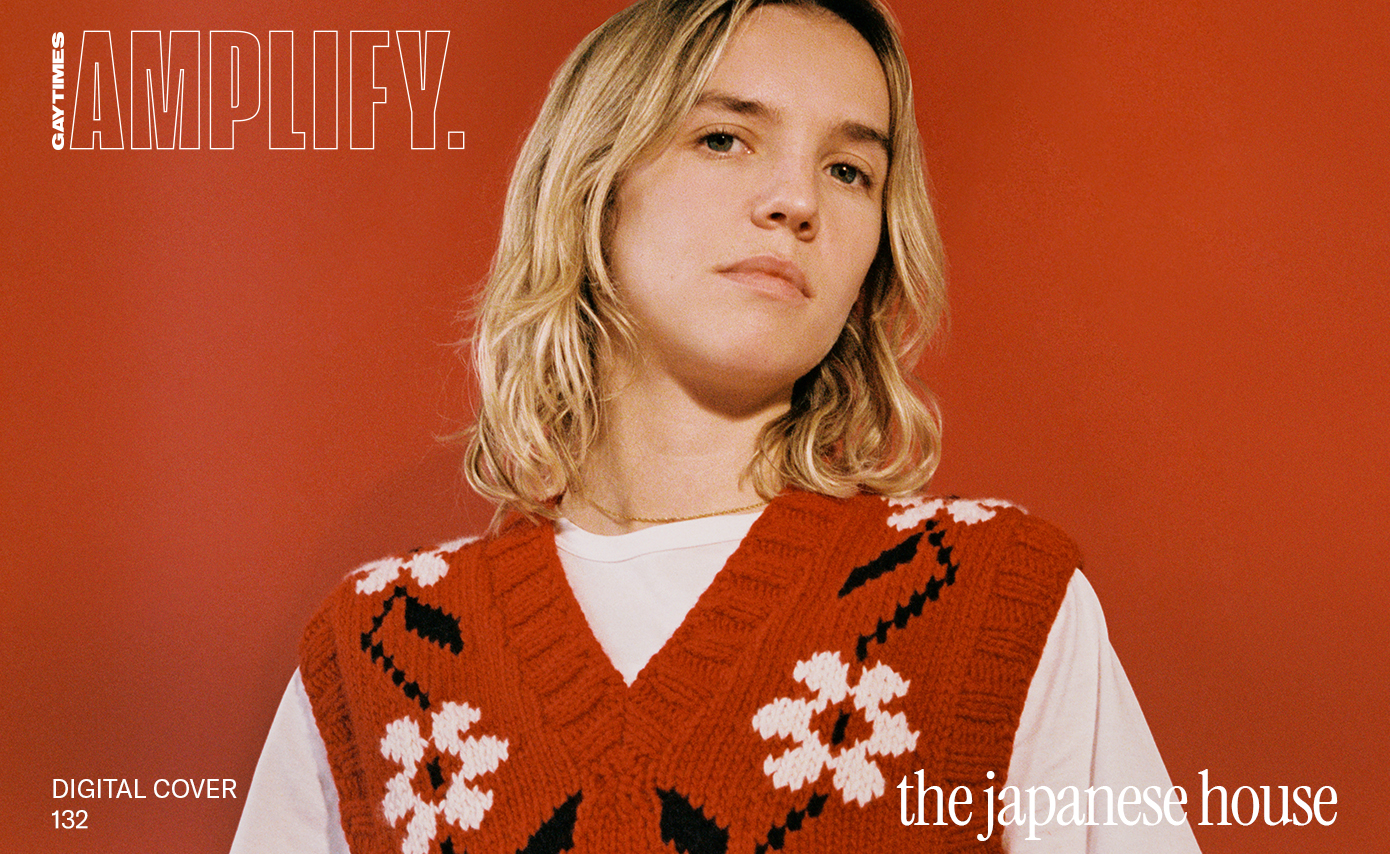
“People liked talking about my ‘anonymity’ a lot,” Amber Bain, aka The Japanese House, says with a smirk, sitting cross-legged from the floor of her Detroit apartment. In conversation she’s refreshingly candid, just as she is on her emotionally forthright new album, In The End It Always Does.
As Bain herself notes, an air of mystery has long followed the singer-songwriter – even as she makes efforts to be more forthright as both an artist and a public face. The reason points back to her low-profile beginning as a musician, where she opted to dodge the media and her identity was surrounded by speculation.
Nowadays, the question of anonymity is something Bain finds absurd – becoming increasingly outspoken on songs and in the press, she doesn’t feel like she’s hiding. “I’ve always been very frank in my lyrics and in interviews,” she notes. “I find it funny when people think I’m trying to be mysterious, because I’m like, ‘What more do you want? Do you want to know my period cycle?’”
Signing to Dirty Hit in 2012, Bain has long been heralded as an artist to watch. But, in recent years, the musician’s profile has rapidly transcended past underground artist status. Bain’s 2017 debut EP, Pools To Bathe In, marked her as an unconventional pop star and now, with her sophomore project, the singer-songwriter is rewriting the record and stepping out as a major name.
Right now, she seems surprisingly relaxed – but it’s easy to see that her career is on the cusp of serious change. Currently finding herself on a whirlwind press cycle promoting her new alternative-pop album, she’s preparing for a slew of US and UK tour dates that will take her everywhere from Southampton to Washington DC.
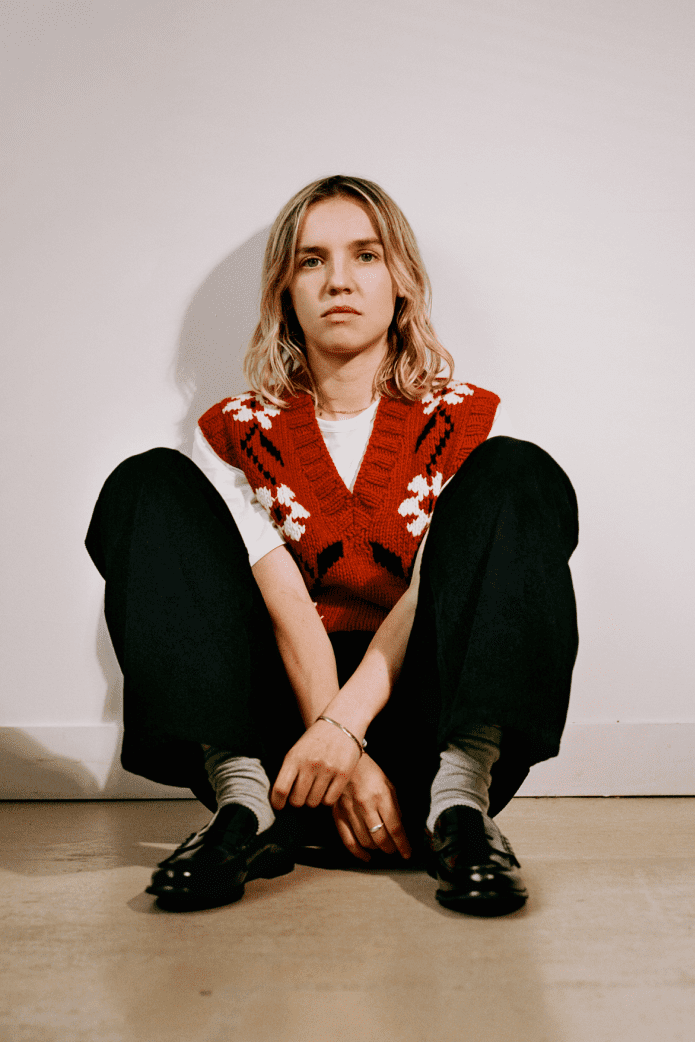
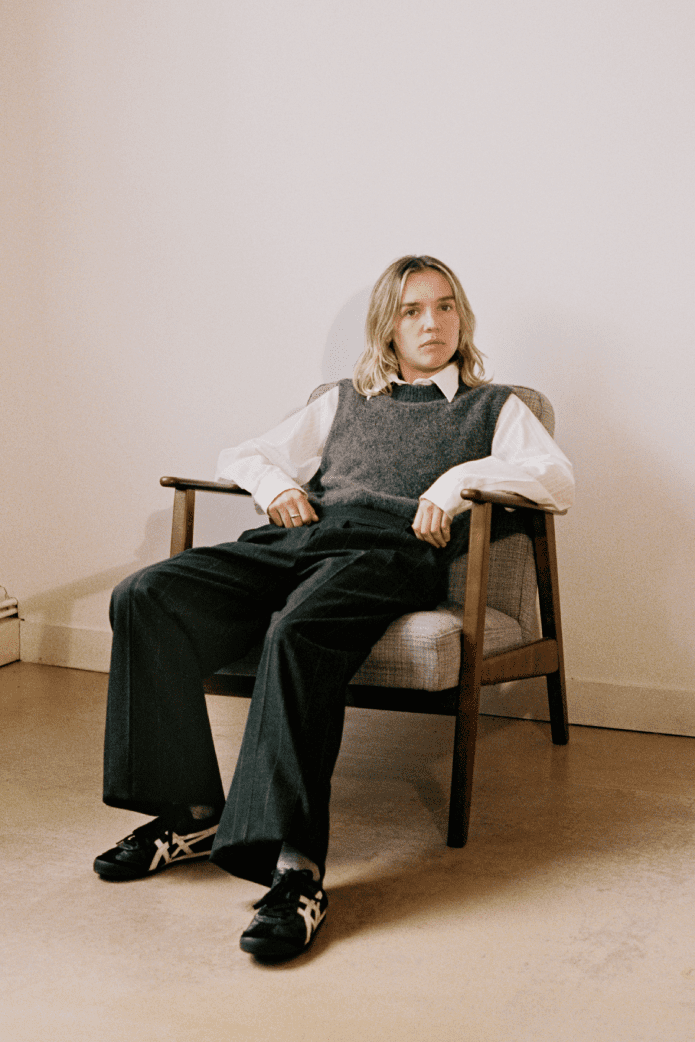
Transformation – in all its forms – has been embraced by Bain. Since her 2019 debut release, Good At Falling, Bain has been through substantial change – she’s moved twice, once from London to Kent, and once across the Atlantic, questioned her gender identity and fallen in love with multiple people at the same time, and also broken up with them. Among this, the singer finds humour in how much things have evolved. “I don’t think anyone was looking at me and thinking that’s a straight person,” she jokes, recalling how she struggled to discuss her queerness as a new musician.
However, things couldn’t be any more different in her album. Bain openly details her life, decorating songs with outright honesty. On ‘Morning Pages’, her collaboration with close friends MUNA, she sings: “You wait for a feeling, it never quite hits / And you wait for the moment she reaches your lips / She never quite hits”. The singer also treads into more traditional pop territory on the album, with more guitar-led riffs and piano ballads, while still embracing the “messy” electronica of her earlier days. Working alongside queer producer Chloe Kraemer steered the album’s “magical” personal direction.
Elsewhere, gentler moments on the album are found in tragic liminalities – things that never quite come, and things that are fated to end. “There is a beauty in sadness when the dramatic moments of heartbreak aren’t always the drama,” she says. “Sometimes the heartbreak doesn’t look like heartbreak, it just looks like a normal day, but it’s just the worst day of your life, you know?”
The musician is also aware of the nuances that come with queer love and relationships: “If you’re queer, you’re used to not necessarily following the main road when it comes to how you have relationships because you’re already breaking normal standards and barriers.” Her first experience of polyamory, where she entered into a relationship with a couple, may have only lasted three months, but it was both ephemeral and revelatory. “It really did make me think about relationships and love in a different way. I was witnessing so many things and then experiencing them afterwards.” To her, the experience was “strange and rare”, watching two people already in love with each other fall in love with her at the same time. “I got to see them try to manage the really complex feelings surrounding jealousy, love and loyalty and see everything being thrown up in the air and landing around me,” she reveals.
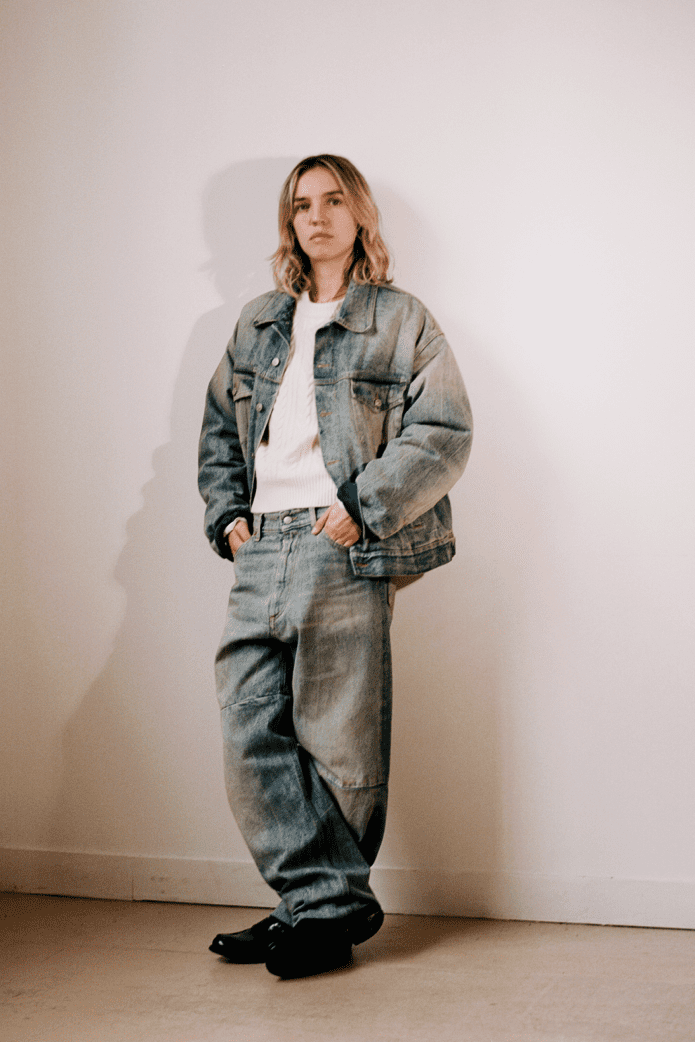
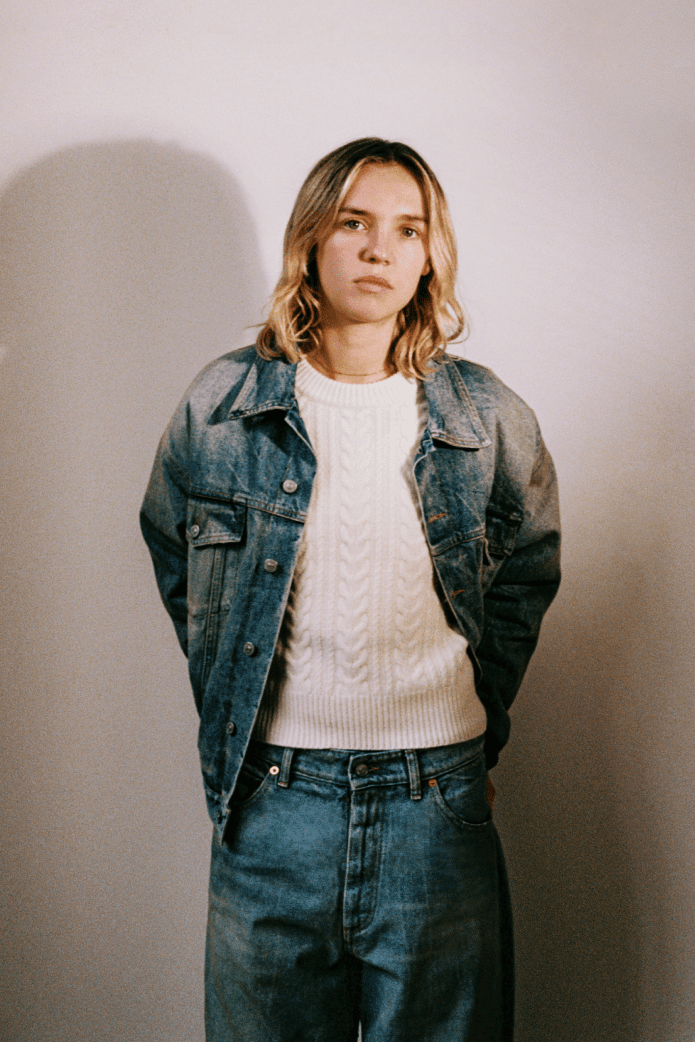
Vulnerability colours Bain’s songwriting surrounding her experience of a polyamorous relationship, which appears throughout In The End It Always Does. ‘Friends’ is a “sexy tongue-in-cheek song about having two girlfriends”. While ‘Over There’, chronicles Bain’s yearning after one partner left the relationship. “It was really difficult, but there are parts of it that felt like being on the cusp of something magical,” Bain reminisces. Though she often realises the impact of certain events long after the time has passed, she is adamant that she “knew the magic” of this experience while it was happening. “I didn’t want to let go, because I knew it wasn’t gonna last long,” she says.
Looking back on it all, Bain reflects that she has no “specific opinion” on how she loves. “I don’t even know if it is for me, being polyamorous, but you never know. It’s like reading a new book and seeing things from a completely new standpoint. It’s inspirational and you can’t escape from that,” she explains. The space to consider these questions is a privilege she feels lucky to have, after spending the last five years “shaking off guilt and shame about being gay”. While the artist still doesn’t have an answer for how she entirely identifies, she’s “learning to accept that that is another key thing about feeling comfortable with it”. Finding a label, or exact answer, is no longer the goal for Bain – particularly when it comes to gender. “You can sit with it for as long as you want, don’t feel a need to have a definite answer, I just use genderqueer because I don’t f**king know!”
Self-exploration is central to In The End It Always Does and in moments of introspection, the album interrogates the external events which shape us from the outside-in. “There’s tragedy in recognising that the things that have happened to you are part of you,” Bain reflects, as if recognising that no matter where you go, the past will always follow you – it’s carried within you.
But despite the adventures of change, agony and acceptance, Bain is already confidently ready for her next project – before she’s even put her second album to bed. With six new songs already written, the musician is ready to revisit the process of understanding herself and her sound.
The Japanese House’s album In The End It Always Does is out now via Dirty Hit. You can buy tickets to her tour here.
